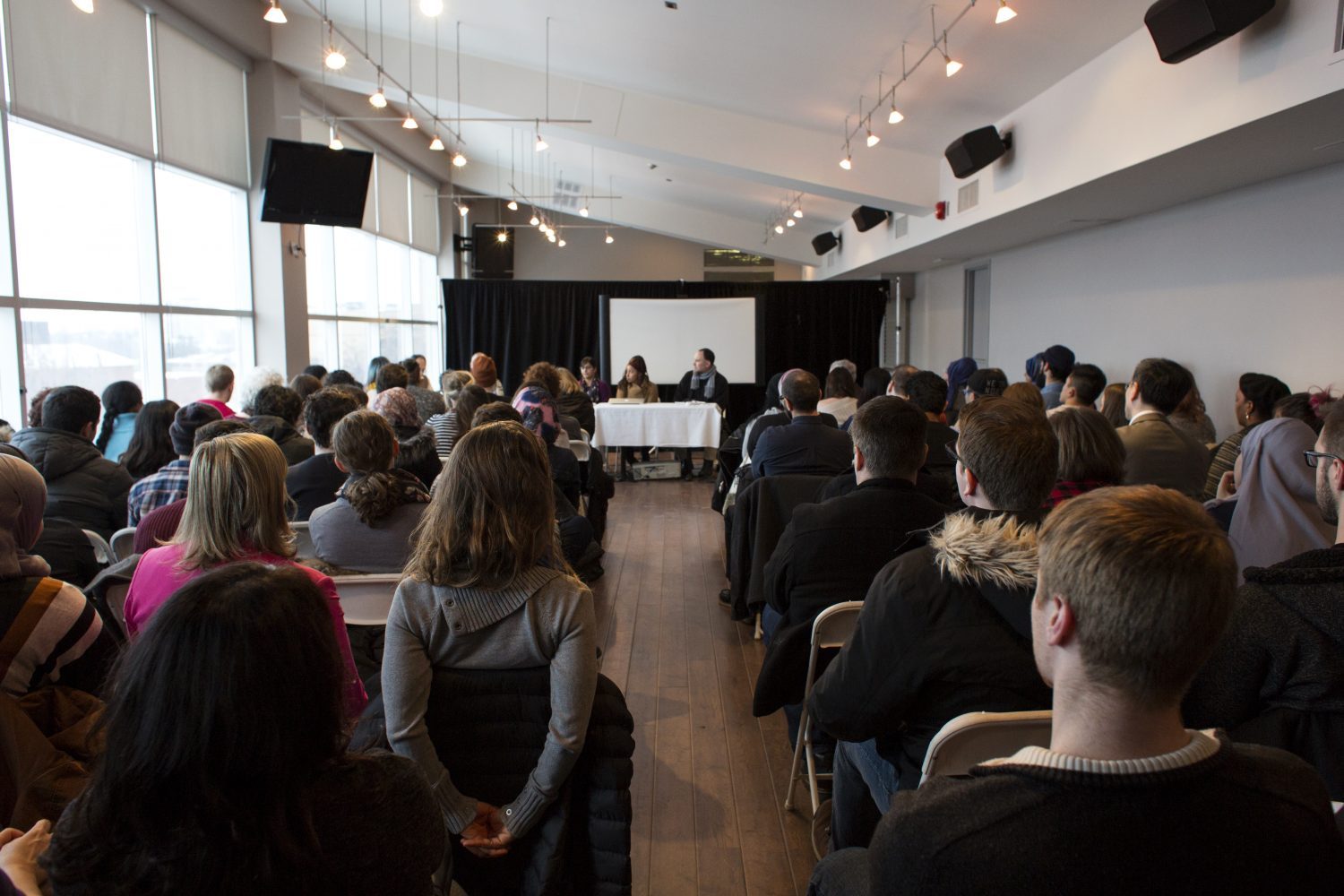University holds social justice forum on Islamophobia


“I’m standing before you, not in my capacity as merely a professor, or a secular intellectual, I stand before you as a person,” said Ali Zaidi, professor for global studies and Muslim Studies and moderator of the forum Islamophobia in Our Times.
A social justice forum, Islamophobia in Our Times, was hosted on Feb. 2 at The Hawk’s Nest on Wilfrid Laurier University’s Waterloo campus.
The panel featured staff and professors from Laurier and the University of Waterloo: Jasmin Zine, professor for sociology and Muslim studies, Abderrahman Beggar, professor for Arabic studies, Timothy J. Gianotti, professor for studies of Islam, Humera Javed, education and inclusion coordinator, as well as Laura Mae Lindo, director of the Diversity and Equity office.
All five speakers at the panel addressed Islamophobia in response to the terrorist attack in Quebec on Jan. 29 and President Donald Trump’s executive order to ban immigration from several Muslim-majority countries.
“God breaks the heart again, and again, and again, until it stays open,” Zaidi said, quoting the famous Islamic poet, Rumi.
“So remember, even in the midst of tragedy, there is light. There is light here.”
Zine, the first of the five to speak for the panel, focused on Islamophobia within Canada’s government. She referred the controversial Bill C 51, which passed in 2015 under Stephen Harpers’ administration. The bill, still in practice today, allows for intense scrutiny from police and Canadian Security Intelligence Service (CSIS).
Also addressed was Bill 60, which banned visible religious affiliation within Quebec’s provincial government.
“Those exclusionary practices are showed up by specific ideological underpins. Among them, are the vague notions to pathologize Muslims as terrorists and impending threats to public safety, and so all of that ideology has been manifested into actions that have empirical evidence here in Canada,” Zine said.
The second speaker was Beggar, who spoke about the “us versus them” mentality which is adopted by countries and their leaders and how Muslims are presented by right-wing politicians.
“Muslims are represented like a body and that body is suffering from something, a cancer called radicalism,” Beggar said.
The Muslim Student Association club at Laurier, who have recently joined with the Diversity and Equity Office, unfortunately could not be in attendance but the president of the club, Zulfiqar Baksh, released a statement which was read by Humera Javeed.
“In these times, when we are faced with two forms of extremism, you must learn to work together and look at our differences as a means of coming together and finding strength. Islamophobia is something of a double-edged nature.”
“Indeed, the actions of Islamophobia strengthens the intolerance of the individual … and speed up the process of radicalization …There’s no benefit, our social structure will simply collapse if hate and ignorance persist.”
Additionally, Lindo touched on the importance of the words people are using when they are describing and discussing the terrorist attack in Quebec, as well the immigration ban.
“We have to say the words. This is about Islamophobia. It’s about injustice and anti-Islamic rhetoric,” Lindo said.
“One of the ways we can honour and respond to the souls that have been stolen from us and all the souls that have been torn and are still with us but are traumatized and bleeding, hiding and hurting, feeling the pain, is by seeking,” said Gianotti, who also closed the panel.
“Seeking a learning that can lead to a cure within our own hearts and our own society.”
All speakers also said that the panel should not be the only step that is taken by allies and witnesses.
The panel all agreed there needs to be a starting point and that there is still much work to be done across Canada and even internally at Laurier.
During the question period, attendees of the panel listened to stories that were shared of Muslim people living in the Kitchener-Waterloo region, struggling with being able to cope and process after the terrorist attack while wondering what they could do to explain this to their children.
“There’s no easy or immediate fix, but it’s extremely important again that we speak the word vulnerability into being and we allow our friends, family and our acquaintances know that this is part of the burden we carry,” Gianotti said.

